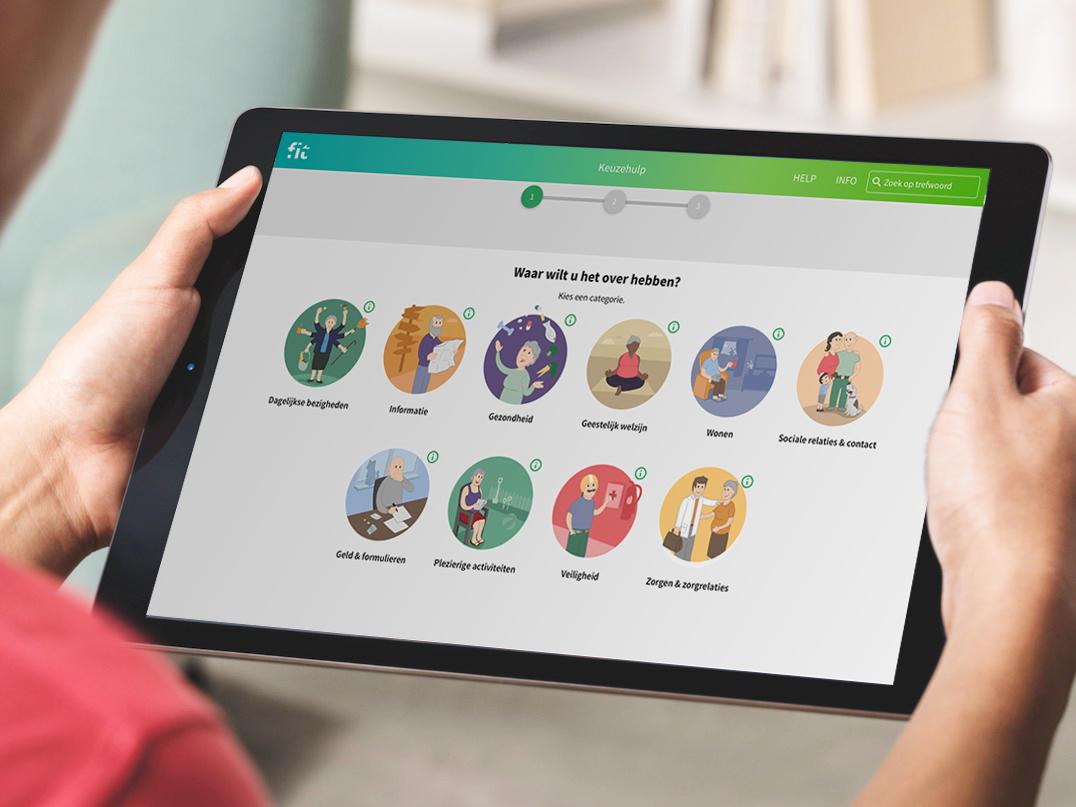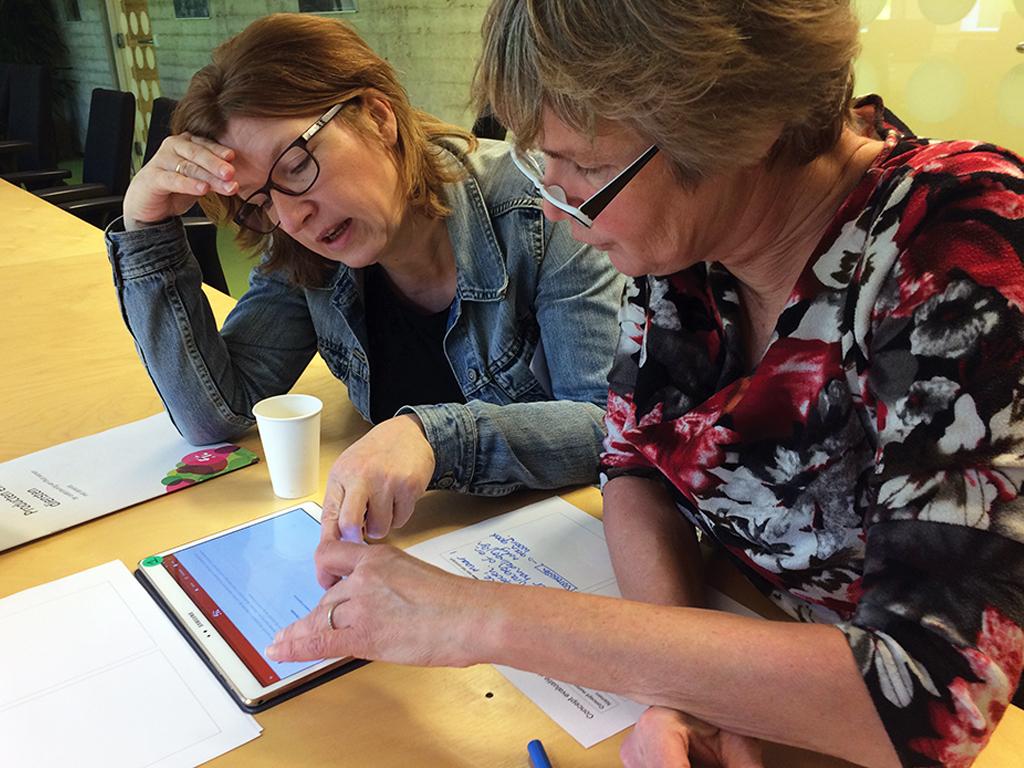In the Dutch project FIT we are aiming to support people who suffer from dementia and their carers in finding the right solutions in and around the home. The project started by investigating the needs and the social environment of the target group. One of the tools we used in this research was a so-called 'experiences booklet', which is now being used in several Dutch care institutions.
The research process
We first conducted a literature study into the challenges of living at home with dementia. We not only looked at symptom-related challenges, but at everything that is needed to live comfortably and in dignity. Think of e.g. maintaining social contacts or contributing to society. The insights from that study were used to define ten themes that we would focus on during interviews.
The 'experiences booklet'
To prepare people with dementia and their carers for the interview, we used a so-called 'experiences booklet', which is sometimes also called a ‘probe’, which is an often used method in design research to collect fragmented qualitative data about your target users. The advantage is that the participants have plenty of time to consider their answers, do this in their own environment and in their own words. The motives behind theirs answers can then be subject of further questioning during the interview. In our (Dutch) booklet we asked questions like 'What are you doing during the day? Who are the most important people around you?' and '"What would you like to do (more often)?' There was also room to write down associations on the ten chosen themes.
At first, the method was met with resistance by the researchers and healthcare staff within the project team. They asked us: "Is it really necessary to ask all those questions? Is this not asking to much of people?!" We did manage to convince the team of the value of our creative research approach. The booklets did lead to rich conversations about living with dementia, the possibilities and impossibilities that sufferers are encountering in their daily lives. Much more than what you would get from a simple questionnaire.
Personal approach in healthcare
Our booklet was very useful in the project. For us, it mainly acted as a tool in the design and research process, but colleagues working in the healtcare instutions really embraced it. The questions (and answers!) we introduced are issues that are normally not spoken of by the staff. While this information is very important to give person-centred care.
The good news is: the participating healthcare institutions in the FIT project will soon expand their intake conversations to a higher level, beyond the usual medical ‘checklist’. The 'experiences booklet' will be used to enrich these conversations, to find out who is the person behind the patient.
Interested? You can download a copy here (in Dutch).
FIT online help
Besides the booklet the FIT project also delivered a digital decision-aid: www.fit-keuzehulp.nl. This tool can be used for people that want to orientate themselves in the possible challenges in living with dementia at home. By using a smart decision tree, the user is helped to recognize and name situations, to define his or her specific needs. These needs are then connected to existing available products or services.


